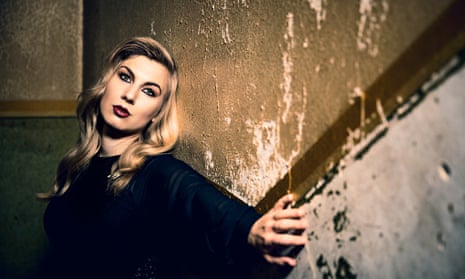Johann Sebastian Bach had four sons who enjoyed significant musical careers; the youngest, Johann Christian, settled in England, and is often known as “the London Bach”. The seven operas he wrote for the King’s theatre in the Haymarket are forgotten today, but his music made a permanent impression on Mozart as a child; it seems highly likely that, at the age of nine, Mozart attended one of the performances of Adriano in Siria in 1765. Classical Opera’s full-scale production is apparently the first since then, and though the score is no masterpiece, both the staging and the musical performance give a good account of the piece.
The text – by Metastasio, the most famous librettist of his day – was set some 70 times between 1732 and 1828. It concerns the emperor Hadrian’s capture of Antioch, where he becomes embroiled in a complex political and emotional entanglement that is only sorted out at the end of the opera when he opts for magnanimity, pardoning his enemies and relinquishing his passionate attachment to Emirena to marry instead his faithful betrothed Sabina.
Bach’s score consists of a long sequence of arias interspersed with an occasional duet or trio and rounded off with a final chorus; several of the individual numbers are attractive, though none is really a showstopper. In this production, there’s some accomplished singing from Rowan Hellier as a forthright Adriano, Ellie Laugharne as a graceful Emirena, Erica Eloff as her bold lover Farnaspe, Stuart Jackson as the volatile Parthian King Osroa, Filipa van Eck as the staunch Sabina and Nick Pritchard as the Roman tribune Aquilio.
In Thomas Guthrie’s traditional production, the visuals are recognisably Roman and Imperial and owe something, in Rhys Jarman’s handsome designs, to the paintings of Alma-Tadema. Ian Page conducts the excellent orchestra in an assured performance.

Comments (…)
Sign in or create your Guardian account to join the discussion